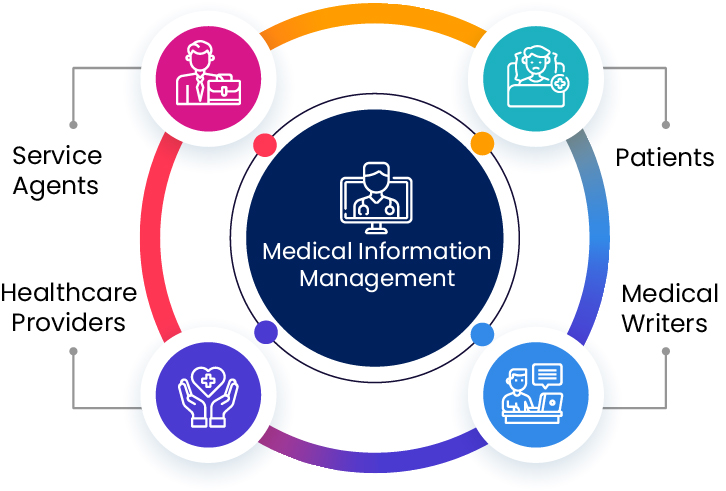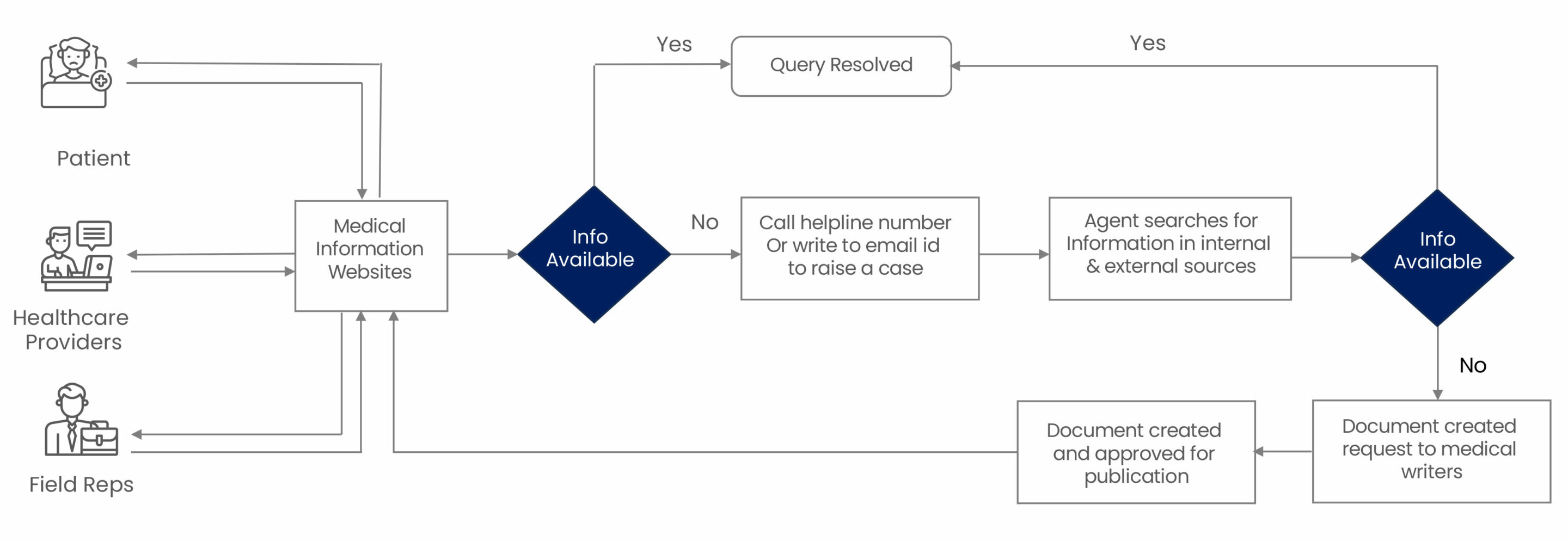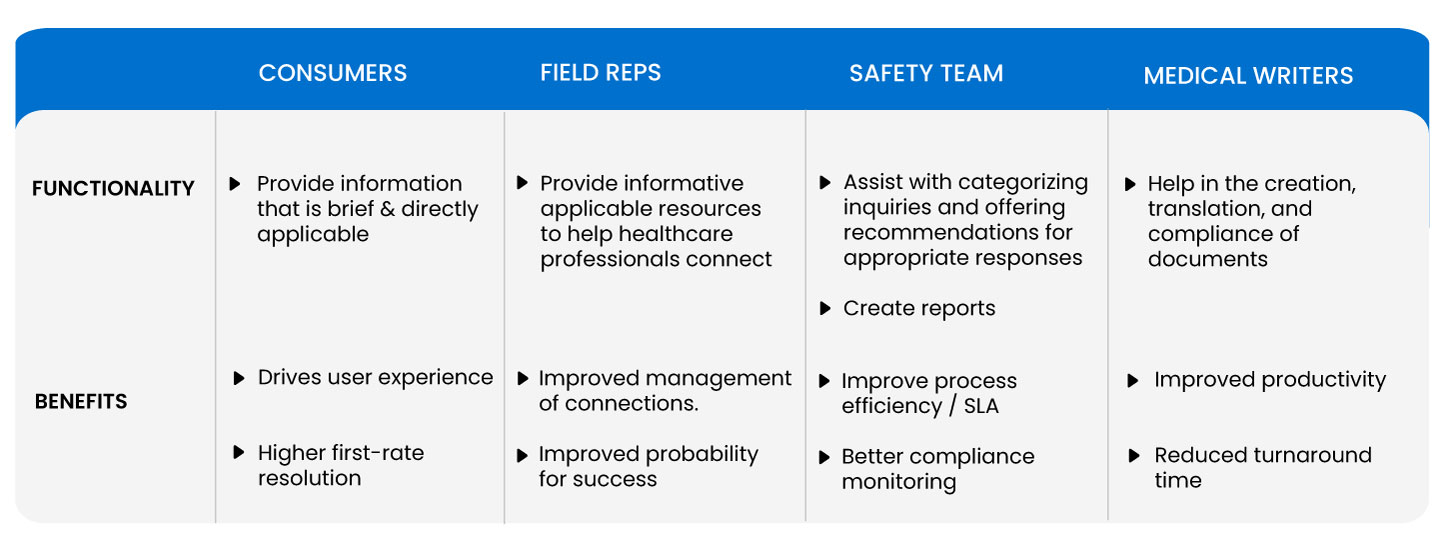Generative AI in Medical Information Management
August 8, 2023
Background
The life sciences industry provides crucial medical information about medicines and drugs. Healthcare providers and patients depend heavily on this information to understand these drugs better. Sales teams use this information to answer healthcare providers’ inquiries and increase sales. Safety teams also use this information to manage queries and complaints received through various channels, such as online and phone based.

The Current Process
When searching for information on the website, navigating through various documents and sections may be necessary to piece together scattered information. Manufacturer inquiries can be submitted if the information required cannot be found. Safety agents will review the inquiry and search for relevant information within an internal website repository. Once the information has been found and approved, the required documents will be emailed and made available to the public. Creating or updating a new record may be necessary if the information is unavailable. This process often involves coordinating with writers and scientists.
The current process is challenging, with too much information for consumers and agents. It is also time-consuming to manage inquiries and create new documents.
How Can Generative Artificial Intelligence (AI) Simplify the Process?
The introduction of generative AI technology is set to revolutionize the medical information management process. A generative AI model trained on a life sciences company’s private documents can enhance efficiency in several ways. For instance, it can act as a first-level interaction provider, delivering concise and relevant information to healthcare providers (HCPs), field reps, and patients. This can improve users’ experience and increase the likelihood of resolving issues on the first attempt. Additionally, the technology can provide quick access to insightful and relevant resources, aiding field sales teams in effectively handling HCP interactions and improving the probability of success. The AI-powered assistant can assist safety teams in triaging inquiries, providing suggested responses, and creating reports for process efficiency. Furthermore, it can help develop documents relevant to inquiries, provide document translation, and highlight regional regulations requirements, thus boosting productivity.

Conclusion
As generative AI is a relatively new technology, it will likely be subject to regulations as it develops. It will be necessary to stay current with the latest developments in generative AI and establish organizational principles for its usage to build trust and promote adoption.
At first, generative AI-generated responses may be inaccurate or incomplete. Foundational models can be trained and tuned to the life sciences company’s domain-related content to mitigate this issue. Ensure it works on internal websites before opening it up to healthcare providers and patients.
The technology challenge of implementing and maintaining generative AI and additional infrastructure costs could be significant. Choosing the right IT partner with the right tools can help navigate these challenges.
A cultural shift will be necessary to adapt to the new norm. The benefits of adapting to generative AI concerning individual work need to be communicated and encouraged. Advancements in generative AI have the potential to transform many businesses. Identifying the right processes for implementing generative AI is the first step toward transformation. For life sciences, medical information management could be one such process.





